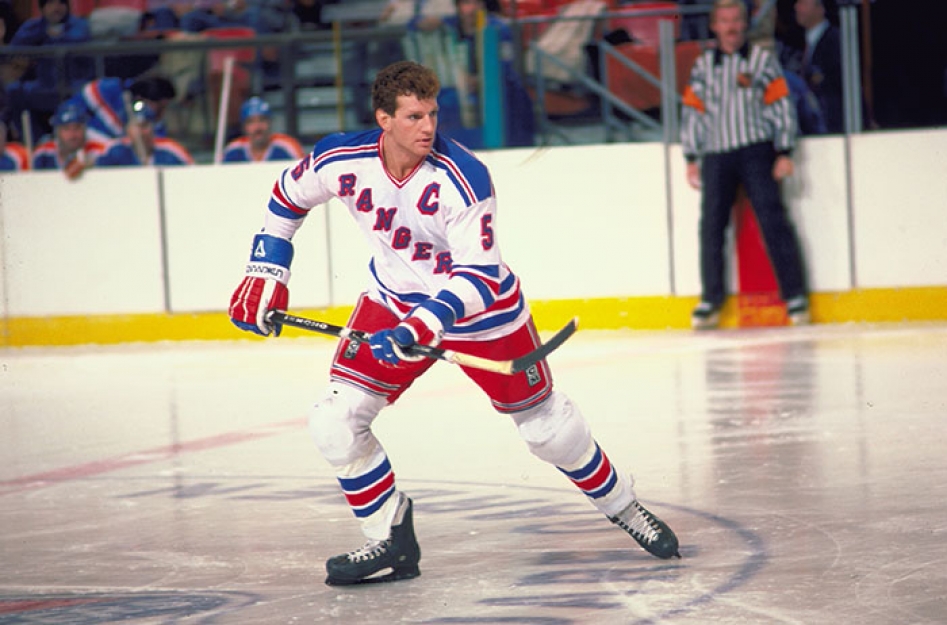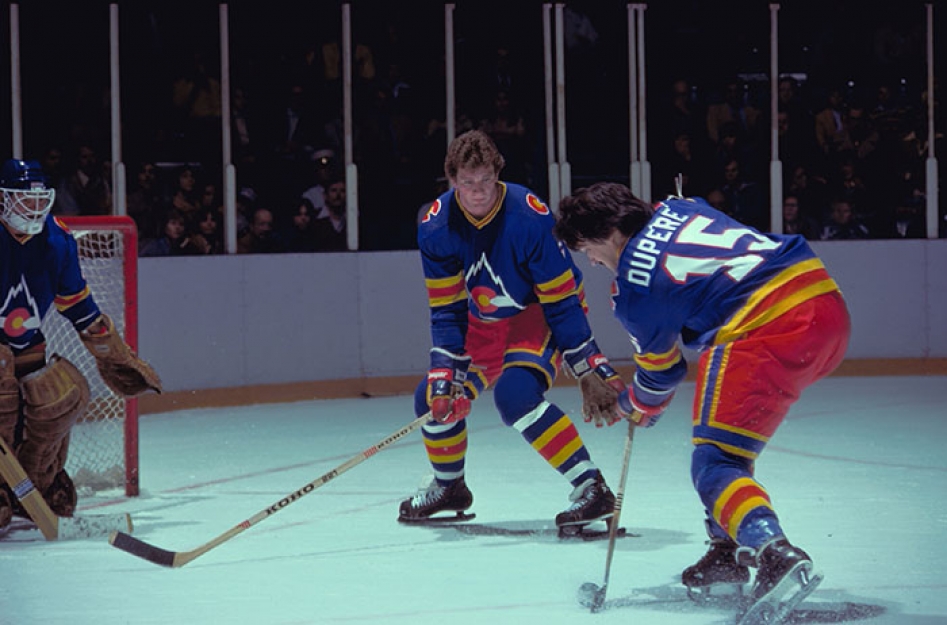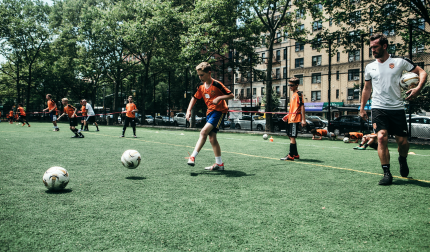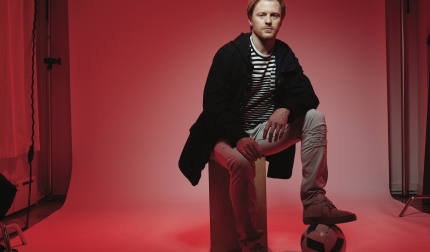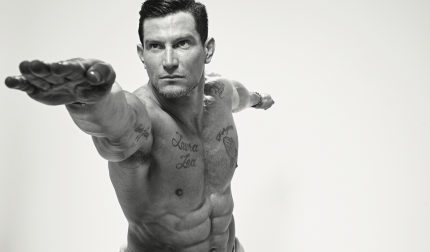As an All-Star defensemen with the New York Rangers in the 1980s, Barry Beck was one of the NHL’s toughest defensemen. Now a coach in Hong Kong, Barry spoke with us about hockey, and life, abroad.
How did you get into coaching?
I retired from the Rangers in 1987 due to shoulder complications. It was a tough transition to make. I was depressed, disappointed and wasn’t ready for it. As captain I felt like I had let down the organization, the fans, my friends, and family. They wanted the Rangers to win the cup as much as anybody. When you are traded for five players, championships are all that matters.
When I was hit by Pat Flatley in the ‘84 playoffs I knew that I was hurt bad. I was carrying the puck from behind the net, and out of the corner of my left eye, I saw a blur coming. Instead of trying to absorb the hit, I leaned into him hard to try and hit him. I tried to get my body square, but didn’t have enough time. It was a big collision and a clean hit, and it was a costly mistake on my part. His shoulder hit the back of my shoulder, and it caused me to break a shoulder bone and separate my shoulder. It was the first time that I ever felt vulnerable. My shoulder would never be the same after that. When you are a power player and have your greatest asset, physical play, taken away from you, you become average at best.
My numerous shoulder problems—the separations and surgery—over three years took their toll on me physically and mentally. I needed time away from hockey, if I was ever going to have a chance to play again. The Rangers had brought in a shoulder specialist from Italy, but after examining me, he said there was nothing he could do. He told me my shoulder was not made to take what I was putting it through. I tried wearing a brace, acupuncture, hypnosis, electricity, extensive physical therapy and other remedies, but nothing worked.
Three years later, Wayne Gretzky called and asked me if I’d like to come join the Los Angeles Kings, so my rights were traded to LA. My shoulder was feeling good enough to try and play again. I played a half-season there, but I wasn’t the same player. I had lost a step. I even wore a helmet for the first time. The game seemed to have passed me by. I wasn’t playing much, so I asked to be traded. Rogie Vachon was the general manager of the Kings, and he said they were unable to trade me, so I retired again. I wasn’t even there long enough to go to the Playboy Mansion. Now that hurt!
A few years later, my friend, Wayne Pendergraft, asked me to help coach a Pee Wee team in Osoyoos, British Columbia, where I was living. I found myself enjoying the game again. Kids have a way of putting everything into perspective. I think I knew then that it was time to get back on the ice and start giving back. It was a new lease on life for me.
What spurred your move to Hong Kong to coach abroad?
Seven years ago, I received a call from a friend who had just returned from a hockey tournament in Hong Kong. He told me that a businessman in Hong Kong, Mr. Thomas Wu, was looking to start a hockey academy and asked if I would be interested in discussing the possibilities. I grew up in Vancouver, which has a large Asian population, so I thought I would at least come and see what their vision was. After our meetings in January of 2007, where the temperature was around 25 degrees Celsius (82 degrees Fahrenheit), I thought this could be a new beginning for me. There are a lot of hockey coaches in Canada, but there were no former NHL players here in China. Hong Kong is also part of the Special Administrative Region (S.A.R.), so it is quite different than Mainland China. It reminds me more of being in downtown Vancouver. I have been the coach and general manager of the Academy for the past seven years, and I am now a permanent resident of Hong Kong. I also coach the Hong Kong Men’s National Team, which will be playing this March at the World Championships in Izmir, Turkey.
What is the hockey culture like in Asia?
The culture of all of Southeast Asia is very diverse. It was something that attracted me to visiting this part of the world. China, Thailand, Vietnam, Indonesia, Malaysia and the Philippines have different cultures and cuisines. Also, the temperature is usually warm and humid, so for someone who has sustained multiple injuries, it sure beats the cold of North America. The Chinese are very close to their families and make sure their parents are well taken care of. This often means that elders stay and live with their children, making the family unit strong for years to come. As far as the hockey culture goes, there are certainly major differences. There is a 12-hour difference to the East Coast of the US, so live games are hard to watch at 8 a.m. Kids in Hong Kong follow the NHL through social media in the same way that they communicate the hockey culture here. There is a strong western influence in Hong Kong, unlike other parts of China, so the hockey culture is expanding quickly through social media.
Is it harder to work with players who didn’t grow up with hockey?
The adult players have jobs and aren’t going to play in the NHL for now. They can only commit themselves for a certain amount of time. The mental part of the game is one area that they must improve on. There is a bright future for our younger players. The hardest part as a coach is that you take some things for granted as a former player. You think players should have that natural instinct to make good decisions on the ice. This is the technical side of coaching where you need patience. We lack sufficient ice time to practice, so it’s an uphill battle that is constantly being waged. As a coach, you have to come up with new resources and formulas to teach. I enjoy that part, because you are always learning as a coach. Every practice and game, I see something I’ve never seen before. We use a lot of inline hockey. It doesn't cost a lot, and it can be taught at the students' schools, so it’s convenient and fun for them.
Is the language barrier a problem for you as a coach?
It’s not a problem. English is spoken often. Cantonese is the preferred language of Hong Kong, so every coach should learn how to yell in it (laughs). Mandarin is the official language of China, and our Chinese coaches help me with that. The kids, and watching movies with subtitles, do the rest.
Has the experience been fulfilling for you?
I have thoroughly enjoyed my time here, and people have been good to me. There are some things that get me going though. If I have to take the MTR, queuing up for the train can be an experience. People don’t like anyone getting ahead of them, and they don’t always follow the rules. I make a point of reminding them! They also wait in front of the elevator doors, so when the door opens they will try and rush in the door without letting you out first. I don’t accept that, so now I stand at the front of the elevator like a linebacker. If you want to rush in, you’re going to taken down like Dick Butkus! I attribute this to the fact that time is money in Hong Kong.
What is your long-term goal coaching abroad?
Long term, we need to develop proper training facilities to be able to develop quality hockey players. They need ice time, and Hong Kong has the most expensive ice in the world. The hockey rinks that we use are in malls, so it’s commercial use first and hockey later on. This is great for shopping, but not so good for hockey. Most venues have been very good to us, but the prices keep rising. We do the best with what we have. But if you want to be a player bad enough, you will find a way to get better and stronger. You don’t need a coach to do 1,000 push ups a day. You only need the heart of a lion.
Do you miss life in the US and Canada?
I do miss New York and Canada. I only have time to visit once a year. I have a 15-year-old son back in Canada, and have missed a large part of his life while I have been here. It's the sacrifice that many coaches make as they love the game, even at the cost of not seeing loved ones. Ranger fans keep me updated on the team’s progress: good or bad! I do hope that the NHL eventually brings their brand to China. It would certainly help in the development and awareness of hockey in China. The Winter Olympics will most likely be in Beijing in 2022. China is a huge market of 1.3 billion people that is untapped by the NHL. The opportunity exists presently for cooperation leading up to the Beijing Olympics. We will see.
You are still absolutely beloved by Rangers fans. Do you ever come across fans abroad that recognize you?
Thank you. Yes, that can be quite funny. I ran into some Ranger fans recently in Thailand. They were kind enough to ask me to dinner. I didn't know that it would be three hours of Ranger banter, but it was cool. It is always an honor for me to be associated with the Rangers, and I’m always approachable. After hearing, “Hey Barry, how you doin'?” and “Shoot the puck, Barry!” 25 times in a New York accent, well, let’s just say the tequila helped! I even found myself saying it hours later.
You still hear fans yell “Shoot the puck, Barry!” at Rangers games over thirty years later. How did that come about?
When I first heard about “Shoot the puck, Barry!” I didn’t know what was going on. Then I watched a taped game and listened to the Rangers announcers Jim Gordon and Bill “The Big Whistle” Chadwick. When I first met Bill after being traded to the Rangers, I said to him “Hey, you got a New York accent!” He said, “That’s because I’m from New York!”
Once I learned Bill’s history—he lost sight in one eye while playing hockey, and he became a Hall of Fame referee—I knew why New York fans loved him so much. He told me after a game that I had a hard shot and had to start using it more. So I did. When I had the puck, on broadcasts he would yell, “Shoot the puck, Barry! Shoot the puck!”
I’d see him after games, especially on the road, and I would always tell him, “I’m shooting, Bill! I’m shooting” You got to start telling the other players, “Pass the puck to Barry! Pass the puck!” I have to thank him for making me somewhat famous. Jim Gordon and Bill Chadwick were not only announcers, but entertainers as well. They were way ahead of their time. They are missed at the Garden. I’m glad I could be a small part of it.
What is the biggest difference between the NHL today and your era?
The biggest difference is of course the money. Average players make millions of dollars now. When I broke into the league, I appreciated the players that came before me and went out of my way to tell them that. I don’t think today’s players feel the same. Most of us didn’t wear helmets, so there was a constant risk of injury. I had so many concussions that I don’t even remember them (laughs)! Playing hurt was normal. Someone else was always ready to take your spot. This doesn’t help when the players reach their golden years. Some guys from my era will struggle financially and find it hard to get out of bed in the morning because of injuries. They usually can tell you what city they were in and which body part they hurt while there. When you’re younger, it is a small price to pay for fulfilling your dream of playing in the NHL. As the years go by, you’re no different than anyone else. You at least get to sign a few hockey cards still to rekindle the memories.
You must have played through some pretty tough injuries besides your shoulder.
Injuries are part of the game and you play with the hand your dealt. There were two other injuries that happened that were close to the pain I felt from my shoulder.
I grew up wanting to look like a pro, so that meant wearing no helmet and losing my front teeth. I even put string around the doorknob and connected it to my teeth and slammed the door. I didn’t lose my teeth, but I cut my lip pretty well. I always told my mother that I wanted to lose my front teeth to look like the players on the hockey cards. She said I would regret it when the time comes, and she was right.
One day at practice in Rye, NY, we were scrimmaging. The puck went back to Carol Vadnais who wound up for a slap shot. I was standing in front of the net, checking someone. When Carol shot, Cam Connor stuck his stick out and deflected the puck straight up to my mouth. They rushed me to the hospital. I could see how bad the cut was from the reflection of my car window. My teeth had also been fractured. The trainer drove my car, with me in the passenger side, to the Westchester Hospital. My top and bottom lip had been cut in half diagonally.
It took 54 stitches to close. From there, we went to the dentist, where he examined the cut and told me that the hospital didn’t do a very good job. That was another 10 stitches. Finally it came time for my teeth. They were still in my mouth, as they had only been fractured but still needed to be removed. He tried pulling the first one out, but I hit the roof because they hadn’t given me a freezing injection. After all four had been pulled, I got up and made the hour long drive back to Manhattan. When I opened the door, my girlfriend almost fainted. The next day my lips were so swollen, she said my lips looked like Mick Jagger’s!
And that’s only one of the injuries?
The other bad cut I received was courtesy of Gaétan Duchesne. We were playing the Capitals at home, when I hit him near center ice. He fell backwards, and his skate came up and sliced me across my face just under my eye. It was a deep cut as the blood pored out. They took me back into the dressing room and instantly called for an ambulance. Nicky Fotiu came by, and when he looked at the cut, he turned white. I was put on the gurney and taken by ambulance to Lenox Hill Hospital, where I had to wait over an hour for a plastic surgeon to come in from Long Island. When he arrived, he said I was cut deeply and he could see my facial bone. He would have to layer the stitches. At this point, from being in the horizontal position for over two hours, the blood had run from my face down into my right ear. It was like the sound of when you put your finger in your ear. Since my ear was full of blood, everything was amplified. The cut ran from the corner of my eye to not far from my ear.
As the doctor stitched me up, I could hear every stitch and the thread going through my skin because of the amplification. I finally stopped counting at 50. When the doctor was finished, he asked me if I knew how many stitches he put in? I guessed 60. “Good guess, but it’s 62,” he said. I tried to play the next night in Pittsburgh, but my right eye was closed so I could only get one contact lens in. I wore a visor for protection but had trouble finding the puck. After I was on the ice for Pittsburgh’s second goal, they pulled me off, and I got undressed after the period.
What characteristics from your era do you still wish existed today?
When I played, you didn’t communicate with the other teams before games or during the season, because it was like war. Big men playing full contact try to hurt and punish each other. It's part of the game. Now players do commercials together and enjoy family outings, as there is much more player movement now than when I played. There was no free agency, so you stayed with the same team for years unless you were traded. The NHL has a product that they have to sell and promote. It’s all about entertainment. Every team has community programs that focus on development. Every team should be active in their community. I would also like to see a league game played without helmets to see how the players would react. I think there would be a lot of respect. Most likely, players would be late for warm-ups. They would be fighting for mirror space in the locker room (laughs).
What was it like to play for Herb Brooks?
When Herb first joined the Rangers, it was after the USA defeated Russia at the Lake Placid Olympics. No one was beating the Russians in the early eighties, so we thought maybe there could be a miracle with the Rangers also. I loved playing for Herb. People think there was conflict between us, because I threw a garbage can at him over a disagreement. There really wasn’t. He changed the game for me and made me a better player. His system included all five players attacking with puck possession. Defensemen always joined the rush. I enjoyed that style. You had to skate hard, as we often did in practice. If we lost a couple in a row, he would push a few buttons to shake things up.
The coach is responsible for the team winning at the professional level. If not, he won’t have a job very long. Coaches have different methods for each player. He will address them individually and also as a team. You have to know your personnel. Herb was consumed with hockey. It was hard to get close to him, and that’s the way he wanted it. He had his reasons. He knew he had to be tough to get results, and I respect that. We had some good runs while he was in New York. I miss him. I’m still in contact with his son, Danny. We had some good times while Herb was there.
Is the story of how you got traded to the Rangers true?
If you mean the story of Don Cherry and his dog Blue, it’s true. While I was with the Colorado Rockies, coach Don Cherry had a bull terrier named Blue that waddled into our locker room. Blue came in and, you know dogs, he rubbed his butt on the floor, right in front of my locker, in the area I used to do pushups. So I gave Blue a little whack with my stick, and he ran yelping back to Don's office. Don came in and asked who did it, but we looked around and said we didn't know. The next day, I got traded to New York. Don loved that dog more than any player. There was talk of me being traded, as they wanted to move the team to New Jersey, but I said I wouldn’t go because we had a good young team in Colorado. Maybe that was the icing on the cake. Since then, I’ve owned my own bull terrier, but I named him Dino. Blue was reserved for Don only!
Is there anything else you would like hockey fans to know?
I would like to thank Ranger fans that have kept in touch with me through social media. I live half way around the world, and I lose touch with friends and family at times. What I miss the most is the players I played with and the feeling of being part of a team. You go through a lot of battles and have to support one another. It's a good feeling. You have to care for one another to win, and that means busting a few heads at times and going out for cocktails when you need to. But you do it as a team. You also learn early to help others in need, as you didn’t make it to the NHL by yourself. You had a lot of help. This is a common feeling among hockey players, many of whom are from the working class. Humility is a trait found in almost every player. If you are arrogant, you will get a lesson in hockey etiquette by a teammate at your next practice. You won’t have to wait for the enforcer. Anyone will gladly help you out!


